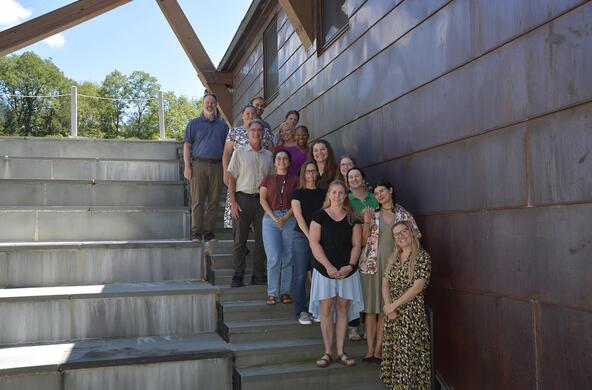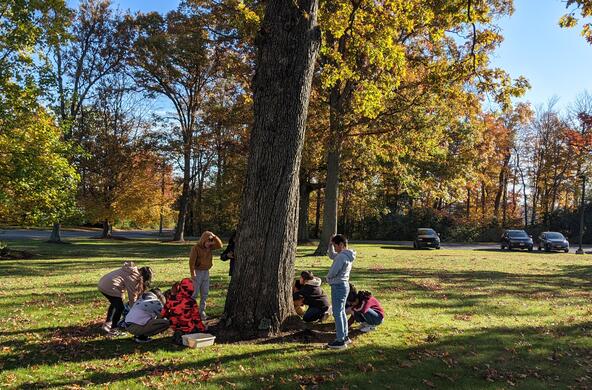Teacher training can help infuse classrooms with current scientific thinking. When teachers are confident and engaged in new concepts, students benefit. With this in mind, the Cary Institute's Ecosystem Literacy Initiative recently launched a Summer Institute for Teachers. It was created to provide free professional development to K-12 teachers - many drawn from our region. The week-long sessions immersed participants in the latest thinking about ecosystems.
In addition to exposure to the Cary Institute's scientific staff, participants were given the opportunity to strengthen their analytical skills and learn methods of integrating ecosystem concepts into their lesson plans. The training took place in July at the Cary Institute's 2,000-acre campus in Millbrook and nearby field sites.
Twenty-seven teachers took part in the pilot effort, with attendees drawn from schools throughout Southern New York, including Dutchess County, Ulster County, Manhattan, the Bronx and Queens. Teachers were able to use the experience to qualify for professional development credits. Several attended as part of the Tidal Marsh Research Project, run by Stuart E.G. Findlay, Ph.D., who provided additional field training.
Two Summer Institute sessions were offered. The first, led by Cary Institute educator Cornelia Harris, was tailored to high school and middle school teachers. Using curricula she helped develop for the Changing Hudson Project, Harris provided participants with a framework for teaching the fundamentals of ecosystem ecology.
Each day, teachers interacted with Cary Institute scientists and engaged in experiments that could be replicated in the classroom. A daylong field trip on the Hudson River helped reinforce lessons about how human activities have altered the river's ecosystem.
"Our goal was to help participants teach ecosystem concepts using the Hudson River and its watershed. This included increasing teachers' confidence in analyzing river data and giving them access to current information about the river's basic ecology," Harris said.
Elementary school teachers were the focus of the second session, led by Cary Institute educator Kim Notin. Using water budgets and food webs, K-5 teachers honed their ability to teach young learners about ecosystems. Hands-on activities included calculating carbon footprints, documenting food chains, creating a solar oven, and using farms and homes to understand ecosystem connections.
Each teacher crafted an ecosystem lesson plan for the upcoming school year. This fall, classroom visits by Cary Institute educators will help ensure new concepts are successfully integrated into instruction. After-school teacher workshops, offered throughout the school year, will further strengthen concepts and techniques learned over the summer. So far, the prognosis for classroom application is good.
"Knowledge that I gained during the Summer Institute is already enriching my classroom. When teaching about the ecological impact of invasive species, I can draw on local examples and exciting facts about the Hudson River. Undoubtedly, this makes lessons more engaging to my students," said participant Jon Dolan, an environmental science teacher at Dover High School in Dover Plains.
Based on the success of this year's program, a Summer Institute is being planned for 2009. In the meantime, interested teachers are encouraged to join in the discussion at the Teaching Ecosystem Literacy website. Moderated by Cary Institute educators, it is a forum for sharing lesson plans, posting grant opportunities, and keeping in touch with like-minded colleagues.
The next time you are washing your hands with anti-bacterial soap, consider all of the things a microbe may have done for you today. In their absence, plants would not grow, food would be scarce and the world would be filled with waste and garbage.






